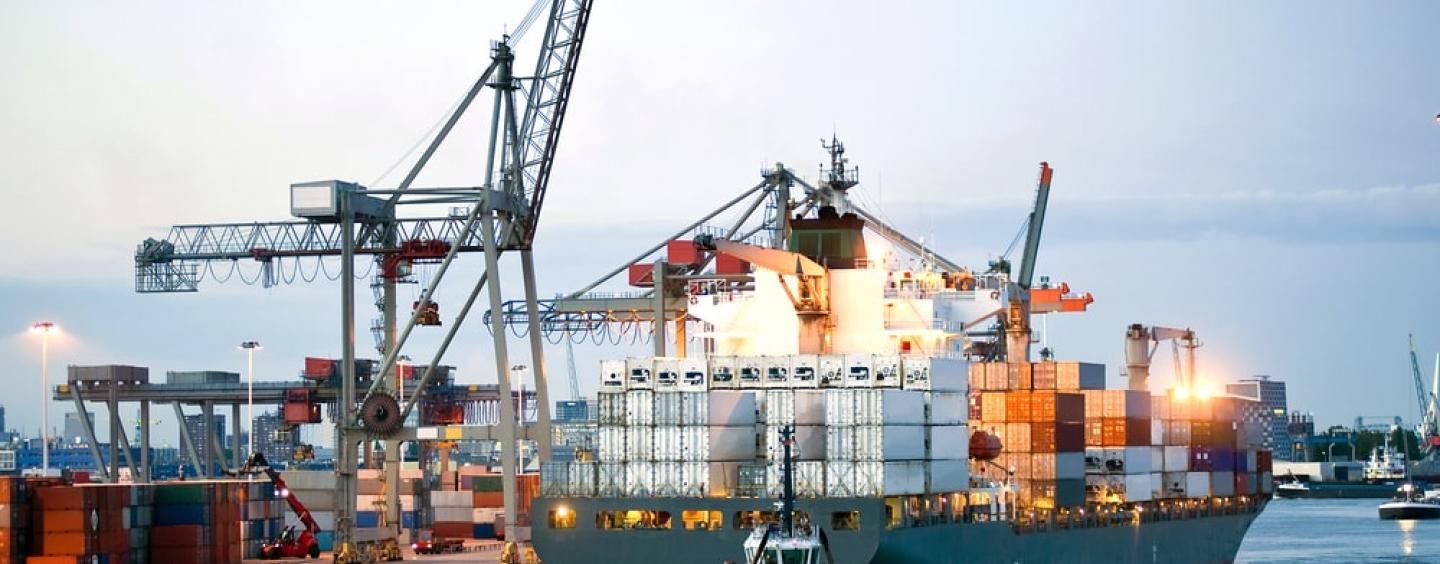Exporting from the Netherlands
The Netherlands owes its riches to the trading business. Despite its small size, both in terms of population and in terms of territory, the savvy entrepreneurial Dutch managed to become the second most important trading party in the whole of the European Union, surpassed only by Germany. Given that ⅔ of the national GDP of that harbour country comes from it’s trade, one realises how much it relies on that particular industry, and that it earns its position in the ranks of biggest world economies. In 2021, they hold a strong 17th place worldwide.
Export and Import in numbers
What are the goods and services that are most exported by the Netherlands?
On top of the list of main exported goods are:
- machinery and transport equipment (28% of total exports)
- mineral fuels (23%)
- food (11%)
- clothing and footwear (10%)
- pharmaceuticals (5%)
Countries which buy most products from the Netherlands are:
- Germany (24%),
- Belgium (12%),
- France (9%),
- United Kingdom (8%),
- United States,
- Italy and
- Japan.
It might be worth noting that 60% of the whole export goes to other EU member states.
When it comes to imports, the list looks as following:
- fuel (29% of total imports)
- machinery (26%)
- food and live animals (8.6%)
- pharmaceuticals and electronics
Main import partners of the Netherlands are:
- Germany (17%),
- Belgium (10%),
- China (8.5%),
- United Kingdom (6.9%),
- United States (6.6%),
- Russia and
- Italy.
Maybe among the most interesting facts is that only Mexico exports more tomatoes than this small European state - 20% of the world’s total! That’s almost 8% more than Spain, third biggest tomato exporter in the world. Even more impressively, as skilled gardeners, the Dutch produce 80% of the world’s flower bulbs.
Netherlands: a mighty re-export player
With its fantastic transportation infrastructure and some of the world’s biggest and busiest ports, the Netherlands is a thriving actor in the realm of international trade, particularly benefiting from re-exports. The statistics show that in 2020, 60% of the goods that entered the Dutch ports have then subsequently left the country as part of that procedure.
Considering that this tiny European nation exported US$675 billion worth of goods around the globe in 2020, which marks a 44,2% increase since 2016, and a 17% growth since 2019, re-exporting goods amounts to a big chunk of the Dutch economy.
Re-exporting is a particular way of trading and shipping goods, which entails receiving them, clearing through customs and then shipping them further to their final destinations, without modifying them in any particular manner. Items are now valued in euros, increasing their price and generating profit for the exporters.
Getting your piece of that pie
Have you thought of becoming part of the lucrative export business and start sending some of your goods and services to the Netherlands? Understandably, entering the international market has its challenges, especially if you cannot simply open a company in the European Union for example and benefit from its free trade, simple and fast banking, cheap transfers, friendly regulations, you name it.
Import-export and VAT
If you want to consult regulations and general information how to start trading with the Netherlands, we recommend this governmental guide that explains all necessary steps. You can learn in which cases are your goods subject to VAT (in principle, exporters do not pay VAT on goods they send to Europe, unless they’re also responsible for import), how to find a distributor or and agent, how to set up shop in the country, and all possible levies that await you. These include import duties, custom tax, anti-dumping taxes, excise duties, as well as VAT.
While the Netherlands offers world-class infrastructure and regulatory clarity, many businesses still face financial friction when trying to expand into Europe. Fluctuating foreign exchange rates, delayed transfers, and regulatory bottlenecks can create costly setbacks — especially for small and mid-sized exporters.
That’s where Narvi comes in. Built for companies operating across borders, Narvi provides modern banking solutions that eliminate these common pain points. In particular, cross-border payment issues in the EU shipping sector remain a persistent challenge — from slow settlements and hidden fees to inconsistent banking protocols across member states — all of which can significantly disrupt cash flow and logistics coordination.
Narvi also offers shipping industry payment solutions that streamline global invoicing, currency exchange, and supplier settlements — helping logistics companies stay liquid and competitive in a fast-moving market.
The Narvi solution
Narvi counts among its associated partners some of the leading companies in the Netherlands export business. Why do these companies choose Narvi? One of the key advantages is our virtual bank account, which gives you access to the Netherlands and 35 other SEPA countries. As a result, we have helped many SMEs to enter and grow in the import/export arena.
Such a virtual account becomes a key part of expanding your operations in the Netherlands and the rest of Europe. Every account we offer comes with a European IBAN number, which you will be able to use to maximize returns, taking advantage of fast, often same-day bank transfers that the SEPA zone guarantees, and secure exchange rates. The less time your money is traveling, the less likely it is to be affected by changes in the exchange rate — and we offer our accounts in multiple currencies. Contact us to learn more and start benefiting from our solutions today.
Further reading: How to open bank account in the Netherlands?
Page content
About the author

Disclaimer
This publication is provided for general information purposes and does not constitute legal, tax, or other professional advice from B2B Trade Payment Services AB or its affiliates, and it is not intended as a substitute for obtaining advice from a financial advisor or any other professional.
